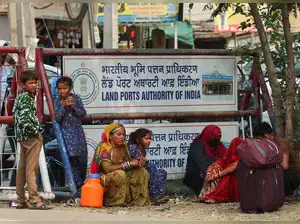 Reuters
ReutersAs many as 70 Pakistani nationals were reportedly stranded at the border on Thursday, as the deadline for leaving India expired a day earlier.
"We are aware of the media reports indicating that some Pakistani nationals are stranded at Attari. We are open to receiving our citizens in case the Indian authorities allow them to cross the border from their side," the MoFA spokesperson said.
The Wagah border would remain open for Pakistani nationals seeking to return in the future as well, the spokesperson said.
India's deadline for Pakistani nationals
The deadline for exiting India for those holding SAARC visas was April 26. For those carrying medical visas, the deadline was April 29. The deadline for 12 other categories of visas was April 27. These were visas on arrival and visas for business, film, journalists, transit, conferences, mountaineering, students, visitors, group tourists, pilgrims, and group pilgrims.
After the expiry of the deadline, no one from Pakistan or India could cross over to each other's country.
Mirroring India's steps, Pakistan had also closed the Wagah border post, cancelled visas given to Indians under the SAARC Visa Exemption Scheme (SVES), and asked military advisers at the Indian High Commission to leave.
India vs Pakistan
The military imbalance between the neighbouring nations is stark as India's conventional forces and defense budget far outstripping Pakistan’s.
This disparity has pushed Pakistan to rely more on asymmetric strategies, including its nuclear deterrent, to offset India’s superiority. The recent Pahalgam attack and subsequent threats of military action have brought these dynamics into sharp focus.
India’s nuclear doctrine has traditionally emphasized “No First Use,” but recent statements suggest potential flexibility in response to major terrorist attacks linked to Pakistan, especially if chemical or biological weapons are involved.
Read More News on
(Catch all the Business News, Breaking News, Budget 2025 Events and Latest News Updates on The Economic Times.)
Subscribe to The Economic Times Prime and read the ET ePaper online.



































